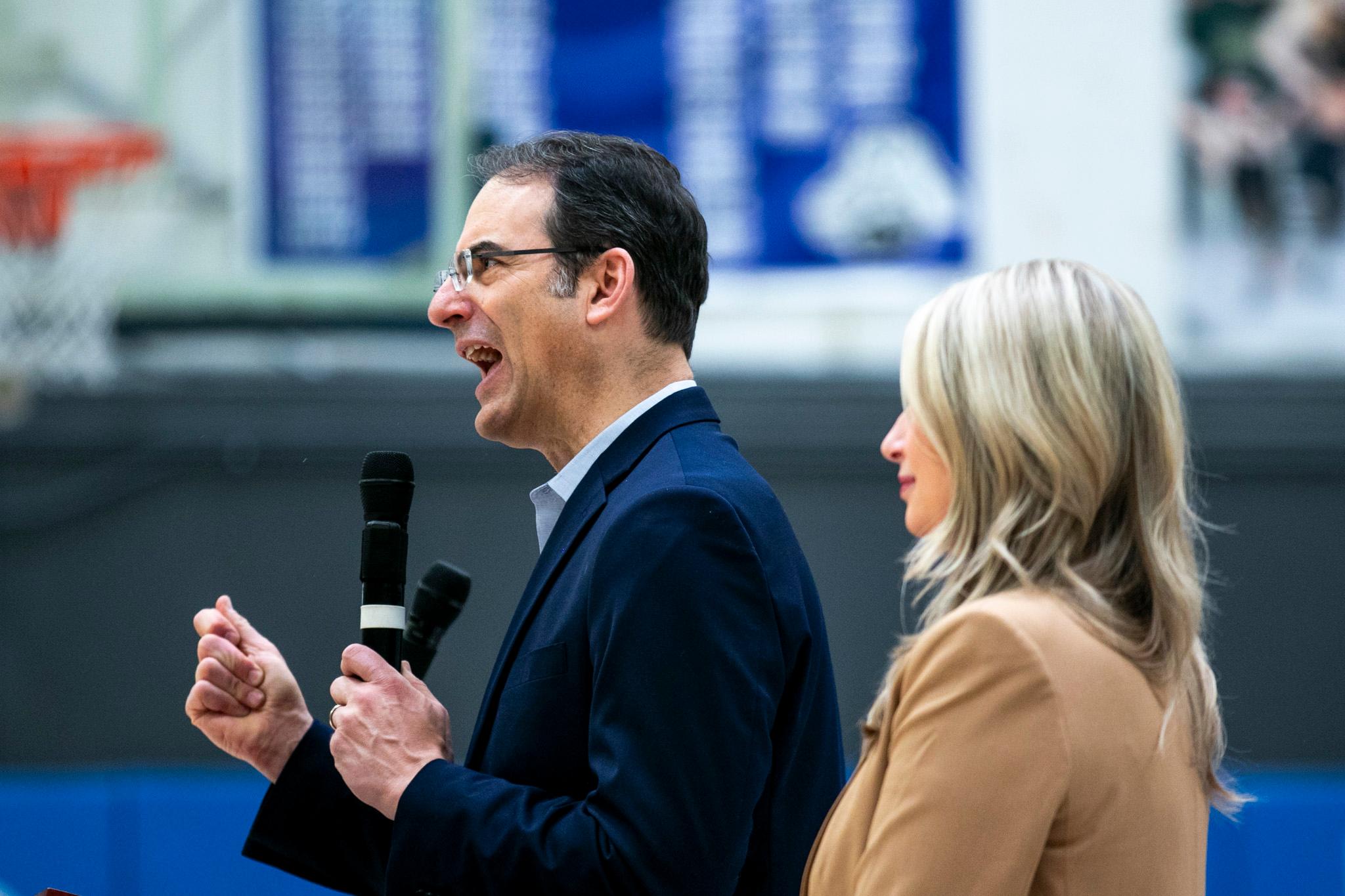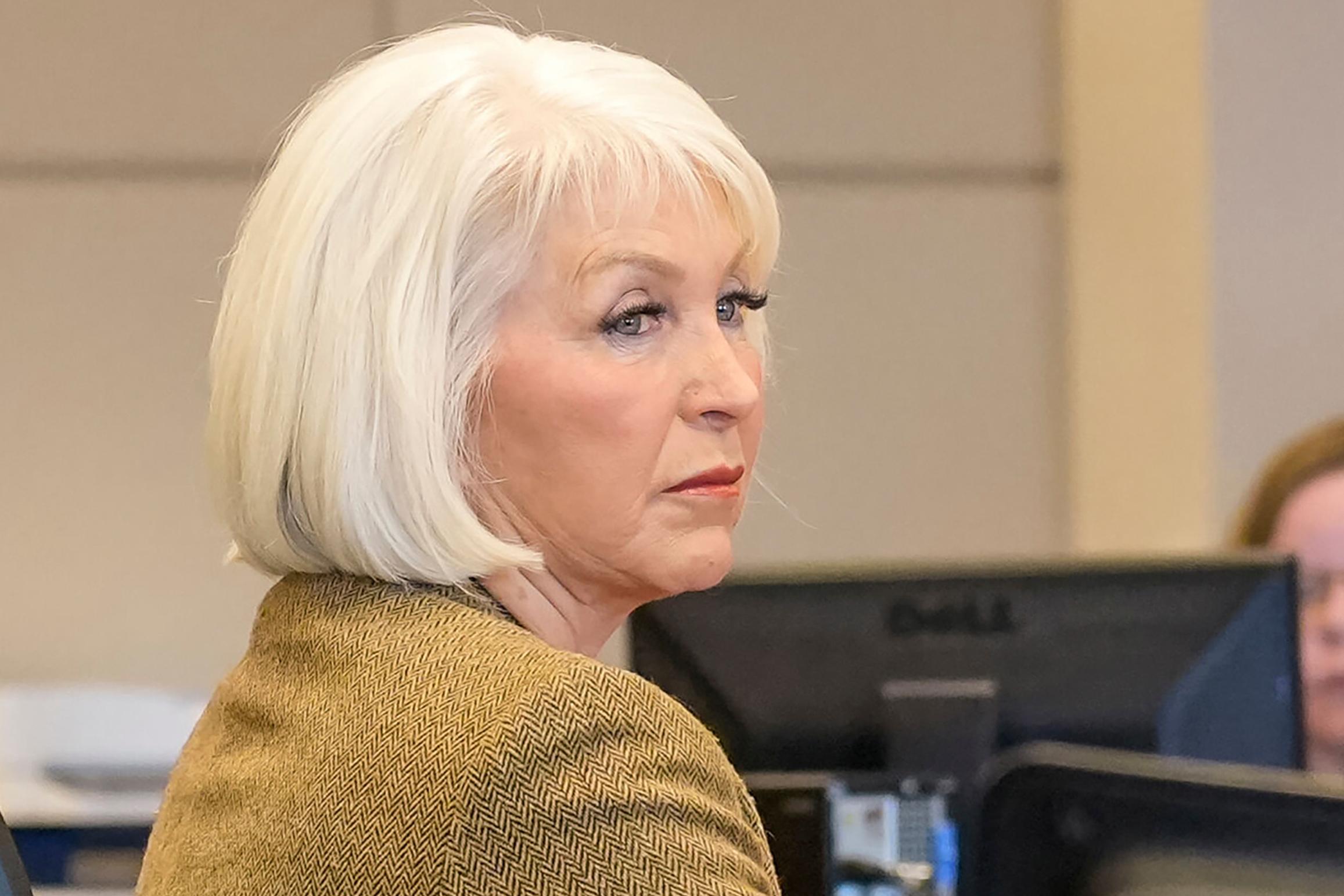As part of our election series, “Colorado Votes,” let’s look at the campaigns’ efforts to appeal to Hispanic voters. Around one in seven voters in the Colorado is Latino, and historically, they favor the Democratic Party. Four years ago, Obama won 61% of their votes. Mitt Romney’s campaign has said to win, it must chip away at that advantage. But as Colorado Public Radio’s Zachary Barr reports, so far, it’s been tough sledding.
[Photo: CPR/Zachary Barr]
Zachary Barr: Both campaigns connect with Hispanic voters in the same ways they talk to all voters: through rallies, ads and phone calls, knocking on doors. But one tactic is especially popular when it comes to Latino outreach: the surrogate. First, Mitt Romney’s.
Susana Martinez: Growing up I never imagined a little from a border town could one day become a governor.
Luis Fortuño: Estos últimos años han sido muy difícil para nuestros familias.
Marco Rubio: I am proud to introduce to you Mitt Romney!
Reporter: Some of Mitt Romney’s top surrogates…Florida Senator Marco Rubio, Luis Fortuño, the governor of Puerto Rico, and former New Mexico governor Susana Martinez. Now, interestingly, the decision to use surrogates is based in science.
Gabriel Sanchez: There’s been a lot of academic research on this.
Reporter: Gabriel Sanchez is Associate Professor of Political Science at the University of New Mexico, and a researcher for Latino Decisions, a political opinion firm.
Sanchez: If you send somebody they trust, somebody from their community, somebody they might identify with, then they at least pay attention to hear the message.
Reporter: Perhaps Mitt Romney’s most relied upon surrogate is his bilingual son, Craig Romney.
Craig Romney: Muy buenas tardes, un placer estar con Uds. It’s great to be with you here all today.
Reporter: Today Craig Romney’s headlining a small outreach event at a campaign office in Thornton. A dozen or so volunteers work the phones, calling unaffiliated voters.
Margie Rabasa: Si buenas tardes señora. Mi nombre is Margie, estoy llamando con un breve mensaje acerca de temas importantes al Colorado.
Reporter: Margie Rabasa is an accountant and a Romney supporter.
Rabasa: This is my first time doing the Spanish script. But I have customers I speak about Romney to Spanish everyday.
Reporter: She tells them Romney is the man to fix the economy. That’s also Craig Romney’s message, one he gives in Spanish language TV ads, at the Republican national convention, and at dozens of events like this one.
Craig Romney: Traditionally a lot of Hispanics tend to lean Democrat, but I think a lot the issues that are important to them are issues that are important to my father: strong family, strong economy, strong schools, those are things that are important and things my father is prepared to lead on.
Reporter: The big issue Craig Romney leaves out: immigration. A recent poll reveals that immigration, along with the economy, are the two issues that matter most to Colorado Hispanics. During the primaries, Mitt Romney said illegal immigrants should self-deport. But at Tuesday night’s debate, he softened his stance, saying young people who serve in the military should become permanent residents. This comes in the wake of President Obama’s announcement in June of a new program called “deferred action.”
Julian Castro: The president took action to lift the shadow of deportation from a generation of young...
Federico Pena: ...young Latinos and Latinas who came to this country, without any say on their own...
Obama: como presidente su valencia me ha hecho recordar que ningun obstaculo es muy grande
Reporter: That was Obama speaking Spanish - plus surrogates Federico Pena, the former Denver mayor, and San Antonio mayor Julian Castro -- all touting the administration’s order to stop deporting many young illegal immigrants. And while this move plays well in the Hispanic community, it doesn’t automatically mean more votes. Paul Lopez is a Democrat on Denver’s city council.
Paul Lopez: Today we’re going go knock on doors; today we’re gonna go organize, today we’re gonna turn out the vote. And it’s going to be done by your hands, by our hands.
Reporter: At a west Denver campaign office, around 100 Obama supporters listen to Lopez’s speech as they prepare to hit the streets. Angela Padilla has been volunteering for weeks.
Angela Padilla: Well, I’ve been walking around the neighborhood with a clipboard, making sure that people are registered to vote.
Reporter: Padilla, who’s bilingual, says when she goes door-to-door she emphasizes the President’s record on health care. She and and others here today are motivated knowing Obama’s advantage among Latinos remains strong. Polls in Colorado and nationwide show support hovering around 70 percent -- putting it above 2008 levels. Mark Hugo Lopez is Associate Director of the Pew Hispanic Center. He says the Obama campaign is in a position to turn that support into action.
Mark Hugo Lopez: There’s a lot of potential votes in the Hispanic vote. Many people who are not voters but who could potentially be voters.
Reporter: A record number of Latinos is eligible to vote in this election, but historically their turnout is low In the last presidential election, 50% of eligible Hispanics voted, compared to 65% of whites and blacks. And in Colorado, where polls indicate the race is essentially tied, a few extra votes could be the difference.
Zachary Barr, Colorado Public Radio News.








